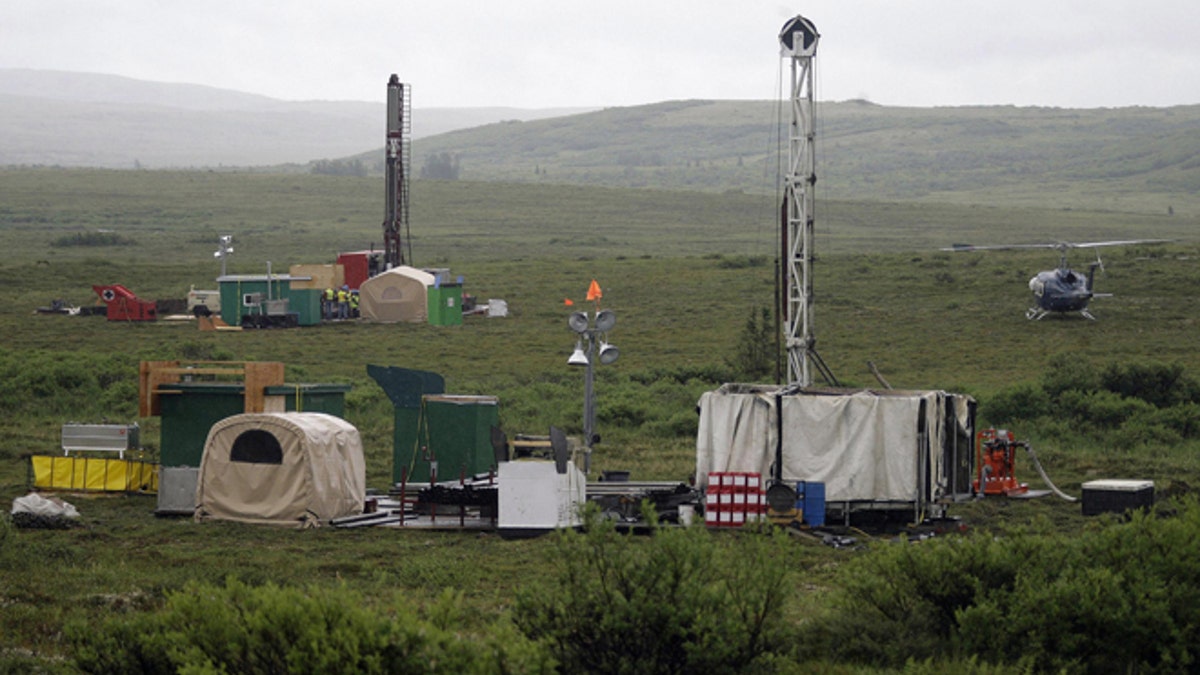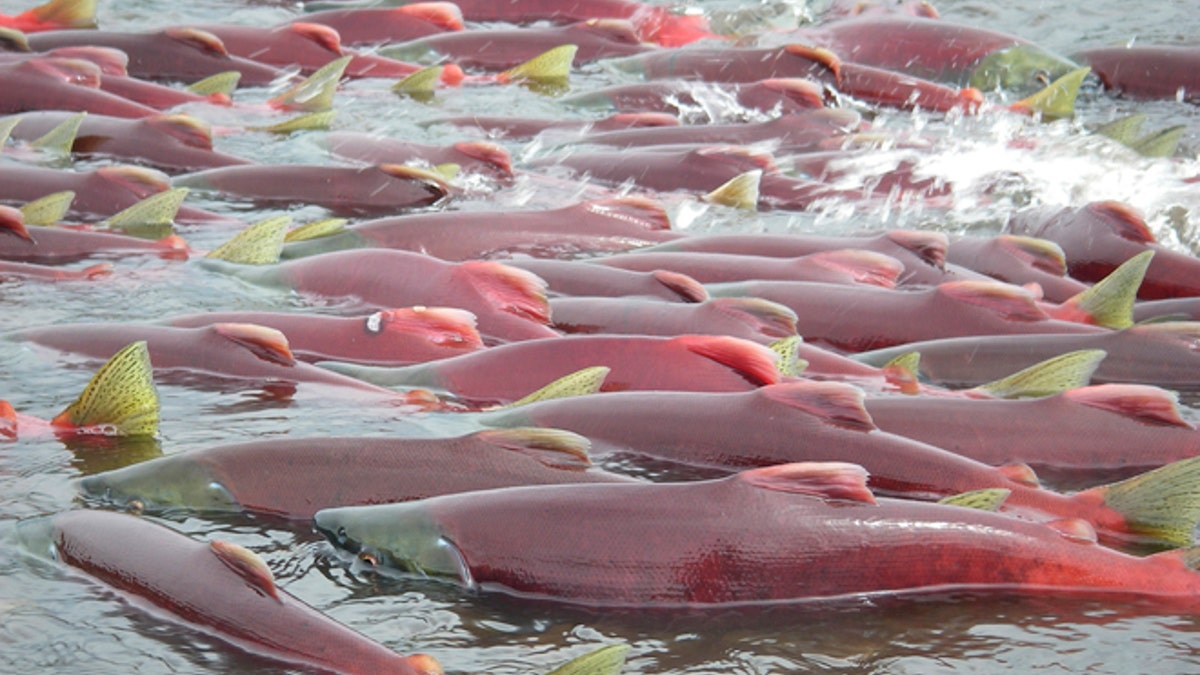
Workers with the Pebble Mine project test drill in the Bristol Bay region near the village of Iliamma. (The Associated Press)
A proposed gold and copper mine that nearly got buried by the Obama administration moved closer to reality when its developers filed new permits with the federal government.
The company behind Pebble Mine, in Alaska’s Bristol Bay, were poised Friday to file a wetlands-fill permit with the U.S. Army Corps of Engineers. The permit application by the Pebble Limited Partnership, a subsidiary of Northern Dynasty Minerals, marks a milestone for the project that has seen renewed interest since President Trump appointed former Oklahoma Attorney General Scott Pruitt to head the EPA.
“At the outset of 2017, we established three ambitious corporate objectives for Northern Dynasty and the Pebble Project,” Northern Dynasty President & CEO Ron Thiessen said in a statement. “We committed to reaching a resolution with the U.S. Environmental Protection Agency to restore the Pebble Project to normal course permitting, to re-partnering on the Pebble Project and to initiating permitting under [National Environmental Policy Act.] As we approach the end of the year, I’m proud to report that we will hit our mark on all three important milestones.”
The permit application comes months after Northern Dynasty reached a settlement agreement with the EPA to apply for permission to build what could be the world’s largest gold and copper mine.
The project has been stuck in legal limbo since a 2014 EPA decision to block the mine, even before the company had submitted its permit applications. The EPA ruling came on the heels of a study that concluded that large-scale mining in the Bristol Bay watershed posed significant risk to salmon and adversely could affect Alaska Native Americans in the region whose culture is built around salmon.
The study provided the basis for the EPA to invoke a little-known part of the Clean Water Act called Section 404(c) that allows the EPA to “restrict, prohibit, deny or withdraw the use of an area as a disposal site for dredged or fill material if the discharge will have unacceptable adverse effects on municipal water supplies, shellfish beds and fishery areas, wildlife or recreational areas.”
Supporters of the proposed Pebble Mine feared that the use of Section 404(c) could result in the project's veto before it goes through the permitting process.
While the permit application indicates that the mining industry will enjoy better relations under President Trump than it did with the previous administration, the Pebble Mine project still faces widespread opposition from environmentalists, Alaska’s indigenous communities, and the state’s large-scale salmon fishing industry.

Sockeye salmon are seen in Bristol Bay, Alaska, in an undated handout picture provided by the Environmental Protection Agency (EPA). ((REUTERS/Environmental Protection Agency))
The project has been hampered for decades over concerns that toxic residue from the mine could harm the world’s largest population of sockeye salmon and endanger the 14,000 jobs and $252 million-a-year generated by the local fishing industry.
“My family has been here for generations and we rely on the salmon to feed our families and to have a livelihood,” Kimberly Williams, the executive director of the Bristol Bay nonprofit Nunamta Aulukestai, told Fox News. “Salmon fishing is not just part of my culture and history, but it provides jobs for everyone in the community and helps send people to college. The mine puts all that at risk.”
Pebble Mine executives have tried to assuage concerns about both the environmental impact of the mine and the effect it will have on the salmon population.
“The project design we’re taking into permitting includes a substantially reduced development footprint and meaningful new environmental safeguards that respond directly to the priorities and concerns we’ve heard from stakeholders in Alaska,” Tom Collier, Pebble Partnership CEO, said in a statement. “Not only are we confident that Pebble as currently envisaged will secure development permits from federal, state and local regulatory agencies, we are confident it will co-exist with the world class fisheries of Bristol Bay and earn the support of the people of the region and the state.”









































